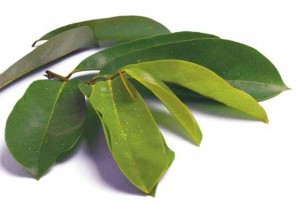Graviola is a small evergreen tree. The leaves, fruit, seeds, and stem are used to make medicine.
Contents
Uses
- Despite safety concerns, graviola is used to treat infections caused by bacteria and parasites including leishmaniasis, a disease caused by parasites transmitted through the bite of sand fleas; herpes; coughs; and cancer. It is also used to cause vomitingand to empty the bowels. Some people use graviola to help them relax.
- Graviola is applied to the skin for arthritis.
- In foods, graviola is used in cooking and beverages
Benefits
-
Cancer Prevention
The leaves of the graviola tree have powerful anti-cancer properties coming from phytochemicals in the plant. The journal “Cancer Letters” published a study looking at the impact of graviola on pancreatic cancer. Supplementing with graviola stopped cancerous pancreatic tumor cells from replicating and caused them to die. Researchers suggest this natural medicine may prevent and treat cancer. The leaves may also be useful for treating skin cancer when applied topically.
Treating Viral Infections
Traditional medicines use graviola leaves as treatment for viral infections. An article published in “The Journal of Ethnopharmacology” in May of 1998 found that extracts from the leaves suppressed the herpes simplex virus. The herpes virus is spread through bodily fluids and often transmitted while kissing or through sexual contact. According the University of Maryland Medical Center, up to 90 percent of the U.S. population has been exposed to one form of the virus and there is no cure. Some anti-viral medications can reduce the number of outbreaks or lessen symptoms. More research is needed to determine what role graviola can play in the treatment or prevention of herpes.
Pain Reduction
Supplementing with graviola leaves may reduce swelling and pain, according to a study published in May of 2010 in the “International Journal of Molecular Sciences.” Researchers gave mice with burned paws extracts of graviola leaf and observed their behaviors. Those given the supplement had less swelling and demonstrated fewer indications of pain. However, more research is needed to determine the safety and efficacy of this use in humans.
Cautions
- Graviola is UNSAFE. It can kill nerve cells in the brain and other parts of the body. It may cause movement disorders similar to Parkinson’s disease.
- Pregnancy or breast-feeding: Do not use graviola. It is UNSAFE.
- Parkinson’s disease: Graviola might make the symptoms of Parkinson’s disease worse.
Interactions
- We currently have no information for graviola Interactions
Other names
Annona cherimola, Annona macrocarpa, Annona muricata, Brazilian Cherimoya, Brazilian Paw Paw, Corossol, Corossol Épineux, Corossolier, Durian Benggala, Guanabana, Guanavana, Nangka Blanda, Nangka Londa, Soursop, Sour Sop, Toge-Banreisi
References
Source: Healthy Eating, http://healthyeating.sfgate.com/benefits-graviola-leaf-8947.html

